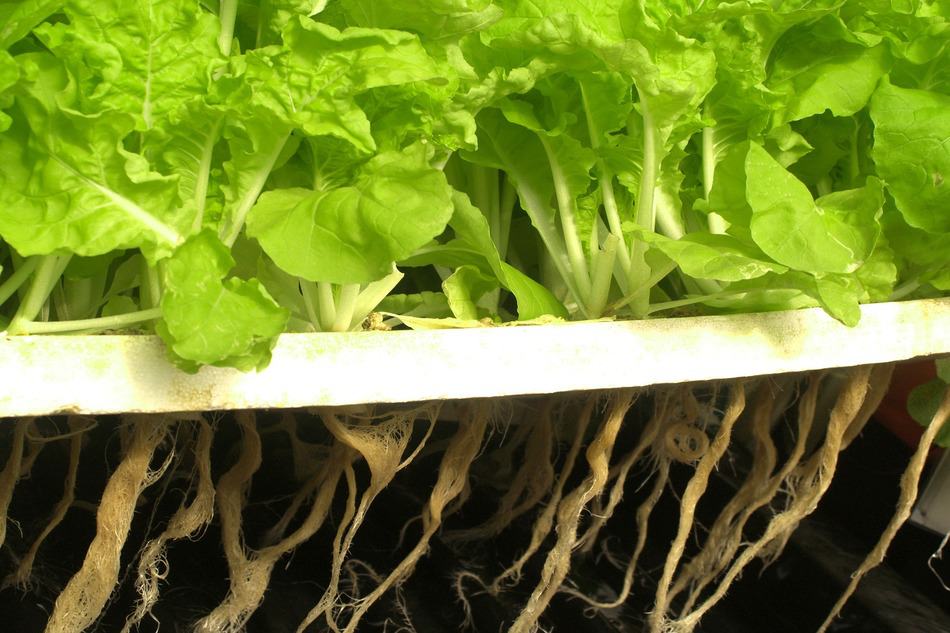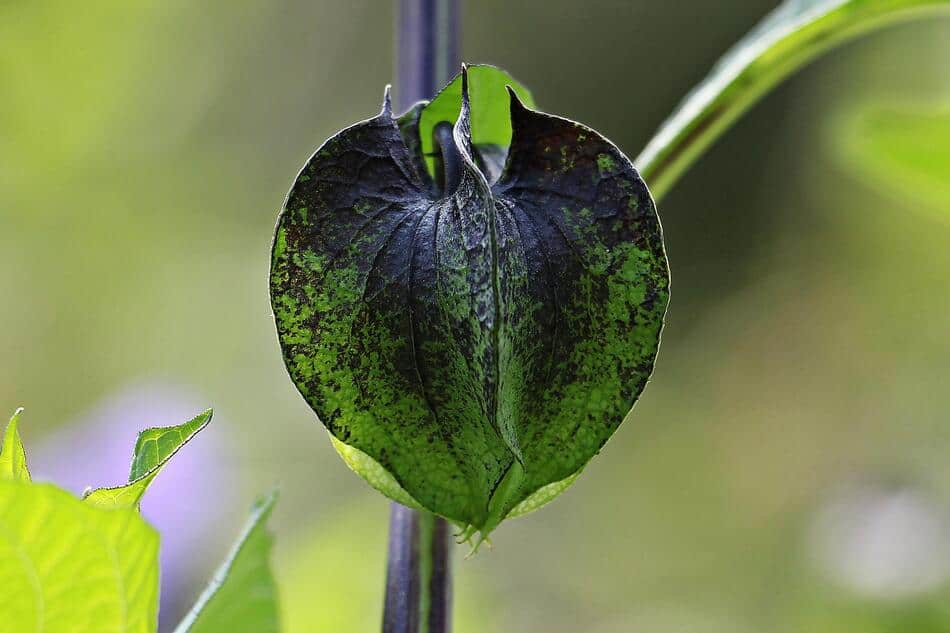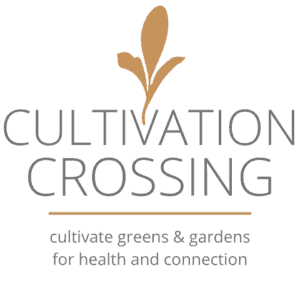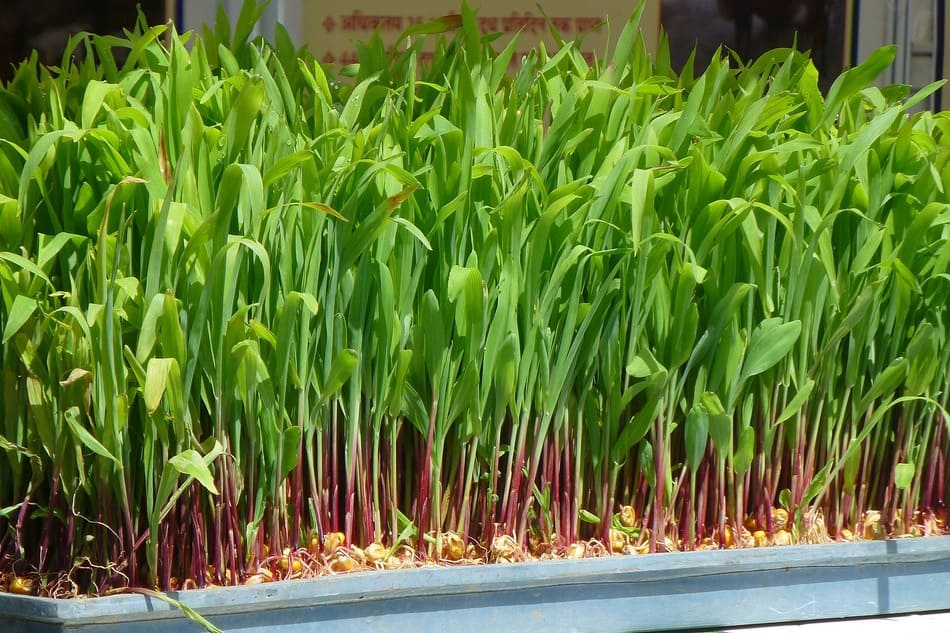When you think of agriculture, what comes to mind? If you’re like most people, you probably think of large-scale farming operations with acres and acres of land. But what about hydroponic agriculture? Does that use pesticides? In this article, I’ll take a look at the use of pesticides in hydroponic farming and answer some common questions about it.
Pesticides are used in hydroponic agriculture. However, the use of pesticides in hydroponics is generally less than in traditional agriculture because there are fewer pests and diseases to treat. Additionally, many hydroponic growers use organic methods to control pests and diseases, so no pesticides are needed.
What Is Hydroponic Agriculture?
Hydroponic agriculture is a type of agriculture that uses no soil, instead relying on water and mineral nutrients to support plant growth. Plants are typically grown in closed systems, such as recirculating nutrient film technique (NFT) channels or plastic buckets filled with perlite or gravel.

Soil-less agriculture has many advantages over traditional agriculture, including improved water and nutrient efficiency, reduced pesticide use, and minimized soil erosion. Hydroponic agriculture is also well-suited for urban areas where land is limited or expensive.
Also Read: How To Start A Hydroponic Farm?
How Efficient Is Hydroponic Agriculture Compared To Traditional Farming?
Hydroponic agriculture is a type of horticulture that grows plants in water instead of soil. Hydroponics can be used to produce crops in greenhouses, on rooftops, in basements, and in warehouses. In fact, hydroponics is often used by farmers to grow crops indoors under controlled conditions.
One advantage of hydroponic agriculture is that it is very efficient. Hydroponic systems can use up to 90% less water than traditional soil-based farming. Hydroponics also allows farmers to control the environment in which their plants are grown. This means that hydroponic farmers can reduce or eliminate the use of pesticides.
However, some people argue that hydroponic agriculture is not sustainable. They point out that hydroponic systems rely on fossil fuels to pump water and nutrients to the plants. They also argue that hydroponic systems can create environmental hazards if they are not managed properly.
Read Relevant Article: How To Germinate Seeds For Hydroponics?
Are Pesticides Necessary In Hydroponic Agriculture?
The short answer is no. Pesticides are not necessary for hydroponic agriculture, and in fact, they can be harmful to plants.
Pesticides can enter the water supply and become concentrated, which can be harmful to the plants. Pesticides can also accumulate in the soil and become a source of contamination for the plants.
It is important to choose a hydroponic system that does not rely on pesticides. There are many systems available that use natural pest control methods, such as beneficial insects and traps. These methods are safe for the plants and do not pose a risk to the water supply.
How Effective Are Pesticides In Controlling Pests?
Pesticides are generally very effective in controlling pests. However, there are a few things to keep in mind when using pesticides. First, it is important to read the label carefully and follow the instructions. Second, be sure to apply the pesticide according to the label directions. Finally, always store pesticides in a cool, dry place out of reach of children and pets.

Are There Any Risks Associated With Using Pesticides In Hydroponic Agriculture?
Pesticides are chemicals that are used to kill or control pests. While pesticides can be beneficial in controlling pests, they can also be harmful to humans and the environment if they are not used properly. There are a variety of risks associated with using pesticides in hydroponic agriculture, including:
- Pesticides can contaminate the water used in hydroponic systems, which can be harmful to plants and animals.
- Pesticides can also contaminate the food grown in hydroponic systems, which can be harmful to people who eat the food.
- Pesticides can pollute the air, which can be harmful to people and the environment.
- Pesticides can also cause skin and eye irritation, and respiratory problems in people who are exposed to them.
It is important to note that not all pesticides are harmful. Some pesticides are actually beneficial to plants and animals. However, it is important to read the label of any pesticide before using it, and to follow the instructions carefully. Improper use of pesticides can be harmful to humans, plants, and animals.
Also Read: How Long Do Hydroponic Plants Last?
What Alternatives Are Available To Control Pests In Hydroponic Agriculture?
There are a number of ways to control pests in hydroponic agriculture. The most common method is to use pesticides. However, there are a number of alternative methods that can be used to control pests in hydroponic agriculture.
One alternative method is to use biological controls. Biological controls involve using natural predators or parasites to control pests. For example, ladybugs can be used to control aphids. Another alternative method is to use physical controls. Physical controls involve using barriers or traps to control pests. For example, you can use a net to prevent birds from eating your plants.
You can also use cultural controls to control pests in hydroponic agriculture. Cultural controls involve changing the environment to make it less favorable for pests. For example, you can increase the humidity in your greenhouse to make it less favorable for powdery mildew to grow.
Finally, you can use chemical controls to control pests in hydroponic agriculture. Chemical controls involve using pesticides or herbicides to control pests. However, you should only use chemical controls as a last resort, as they can be harmful to the environment.
How Safe Are Pesticides When Used In A Hydroponic System?
Pesticides are designed to kill living things, so it stands to reason that they might not be the best choice for use in a hydroponic system. After all, the whole point of hydroponics is to grow plants without soil, using only water and nutrients.
However, there are some circumstances in which pesticides may be necessary in a hydroponic system. For example, if your plants are being attacked by pests or diseases, you may need to use pesticides to protect them.
The good news is that there are many safe and effective pesticides available for use in hydroponics. You just need to make sure that you choose a product that is specifically designed for use in hydroponic systems.
When used properly, pesticides can be a safe and effective way to protect your plants from pests and diseases. Just be sure to choose a product that is right for your particular system.
Conclusion
Pesticides are an important part of hydroponic agriculture. While they may not be the most desirable aspect of the process, their use is necessary to ensure that crops are protected from harmful pests and diseases. By understanding how pesticides are used in hydroponics, you can make informed decisions about whether this type of agriculture is right for you and your family.

